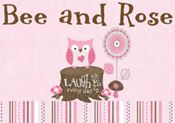You've all heard the story. Starlet grows up in Hollywood, but not the glamorous version depicted in the movies. She grows up in a one-room apartment, is raised by her grandmother, and lives down the hall from her mother. She and her Nanny are on relief, but still manage to see eight movies a week. She comes home, acts out all the parts in front of the mirror, then acts out the scenes with her friends in a vacant lot right down the street. She heads off to UCLA, wanting to be a journalist, but soon realizes her fate is to be an actress. She receives a loan from a mysterious benefactor, goes to New York to pound the pavement on Broadway, gets the lead in a George Abbott musical, and the rest, as they say, is history.
In case you couldn't figure out by the first paragraph whom I was writing about, of course, I'm writing about Carol Burnett, a true living legend of American entertainment. The story of her childhood is now considered showbiz legend, but after reading her memoir, One More Time, I now know that there was a lot of hard work, determination, and pavement pounding leading up to her success.
I don't consider myself to be a rabid fan of many entertainers, but for as long as I can remember, I have ALWAYS loved Carol Burnett. My earliest memories of watching her show occurred when I was around seven or eight years old, watching it with my grandmother at her cabin up in the Adirondacks. My grandmother's place was the only place where we could watch Carol Burnett and Friends. Then we got cable, and I watched it whenever I could.
In high school I had a small group of friends who appreciated Carol, but not to the level that I did. She had brief runs on TV in the early 90s, and I never missed a show. I still have the Carol Burnett Show 25th anniversary special on tape, and it is one of my most prized possessions. (Could that possibly count as one of my 100 things?)
In college I taped Carol Burnett and Friends whenever I could. I drove my roommate nuts as I programmed the VCR: "Carol Burnett AGAIN?!?!"
A year after graduating from college, I found a used copy of One More Time online and purchased it. It was one of the first editions of the book: hardcover, with a book jacket depicting the title in bold red letters. I read it cover to cover when I first purchased it, then it went into the closet of my old bedroom for nine years.
Harvey Korman's death made me remember I had a copy of Carol's book, and knew it was still in my parents' house. I had to read it again.
When I was home for Father's Day, I went straight to my bedroom closet, and the book was still there, along with Walter Cronkite's memoir, Lesley Stahl's autobiography, and a copy of Angela's Ashes. I retrieved all four books and took them home.
Last night I started re-reading One More Time. I finished it an hour ago.
One of the many reasons why I love Carol so much is that she brings such a humanity to whatever role she plays. She brings such a vulnerability and truthfulness to her characters. When she played Eunice, you really felt sorry for her. When she played Mrs. Wiggins, you knew that the portrayal was over the top, but at the same time, it reminded you of other people you knew. When she was the Charwoman, you really wanted to cry; her portrayal of a cleaning lady who dreamed of bigger and better things was so moving.
And a lot of these characters were influenced by her real life. Eunice, Carol has said in previous interviews, reminded her a lot of her Mama, a woman who had big dreams that never came true. Louise Burnett moved to Hollywood from San Antonio to try and get on the staff of a major Hollywood magazine. She only freelanced a handful of articles. She became depressed and turned to the bottle. Alcoholism eventually killed not only her, but Carol's father.
The Charwoman, I believe, came from a job that her Nanny briefly had working as a cleaning lady for Warner Brothers Studios. Carol would accompany her on her jobs, and would admire all of the pens, paints, and brushes that the studio artists used to paint their wonderful posters.
Maybe that's why the Charwoman became Carol's signature character/logo; she represents humble beginnings and the aspiration for greater dreams...
I also admire Carol because she has not, nor will ever, forget about where she came from. She writes about her days growing up with tenderness and affection. Some who have grown up in circumstances such as Carol's, in poverty and with addiction in the family, with bitterness and resentment. Carol knew that she was loved; her Nanny, Mama, and Daddy all loved her "in the best way they knew how." If Nanny had to lie to get a relief check, she did, and the money would come for another month. If Nanny had to lie to get grocery money, she did. Nanny made sure that Carol had food to eat, clothes on her back, and a roof over her head. Carol was never abused nor neglected. Her family may have had problems, but it was her family, and she loved them the best way she knew how.
Most importantly, Carol appreciated every bit of her success. Many Hollywood stars can be ungrateful of their wealth, but Carol valued every minute of it, mainly because she knew the value of hard work. She writes about how she worked as an usherette, handbag saleswoman to save money for tuition and transportation fare to UCLA. Once she got to New York, she worked as a hatcheck girl to pay for her rent at the Rehearsal Club, a boarding house for young women interested in pursuing careers in the theatre. (Rent was $18 a week--imagine that in this day and age--and she kept worrying if she would earn enough tips to afford it).
This was not a memoir I really wanted to end. She finishes the book by visiting her old one room apartment as an adult. She brings a tape recorder with her to chronicle the visit, and discovers that, in the words of an old French proverb, "The more things change, the more they stay the same." Carol writes that she will never visit her old apartment again...
...but she does. A later edition of One More Time was published several years ago to coincide with the opening of a play based on the book. Carol ended up renting the space and lived there for a month. I would love to get a copy of the update and find out her thoughts on this.
The play that Carol wrote, Hollywood Arms, opened on Broadway in late 2002, not long after the death of her oldest daughter, Carrie Hamilton, who co-wrote the play with her mother. Carrie was the one who suggested turning One More Time into a play.
Ironically enough, Carol's Nanny states, after the death of Carol's mother, "Nothing is worse than the death of your child." How tragic that Carol had to experience this, the most unfortunate of deaths. Carol Burnett has experienced much tragedy in her life, but has also experienced much happiness. She has said, "A lot of comedy is tragedy plus time," which is my all time favorite quote and the one I leave on many blogs, forums, and E-mail surveys. She is a survivor.
Maybe that's why America has always loved her--she is a survivor. She is not afraid to be human.
We're so glad we had this time together.


































No comments:
Post a Comment